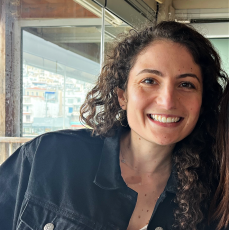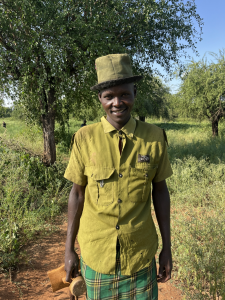Nigerian novelist Chimamanda Adichie famously says in one of the twenty-five most popular TED talks of all time, the “single story… makes one story become the whole story.” Adichie states that a single narrative may not be untrue, but it is incomplete. This sentiment could not be more true of Pokot and IlChamus “warriors.”
The studies I read about Kenyan pastoralist groups before my internship highlighted conflict, cattle raids, tribal competition, and mortality rates—ie, all negative themes. While I am sure there are research studies about peace among the groups as well, they apparently did not meet my algorithm. On a related note, at CPI we use strong rhetoric (ie “warriors”) to refer to herders who have participated in cattle raids. I think both of these factors contributed to my initial assumption that herders, on the whole, are violent. So, I came into the fora peace outreach workshops, which I’ve spoken about here and here, thinking the herders would talk or even boast about X and Y raid they participated in or plans to seek vengeance.
However, contrary to this general narrative of conflict and violence in the region—the majority of “warriors” want peace. In our fora workshops, every single herder/warrior whom we spoke with said that they are ready to coexist peacefully with the other tribe. To be frank, I was shocked. This widely felt sentiment indicates that the communities are ready to work past grievances and distrust, though it is a gradual process. I also learned—again, contrary to the narrative of conflict and violence in the region—that the instigators of raids are not the herders in frontline villages that CPI works in. Instead, they are “rogue” warriors, who live far away from the Pokot villages. They instigate violence due to individual motivations, not on behalf of the Pokot community. It is both naive and inaccurate to stereotype an entire community as hostile. I have now learned this lesson.
The Pokots’ shift towards peace is also being recognized on a national level. For the first time, the national government is recruiting Pokots to the National Police Reservists (NPR), the national police force. Formally, the Pokots were prohibited from joining NPR because of their collective image as aggressors. However, in lock-step with CPI peacebuilding programming, “reformed warriors” (as CPI says) are now given the opportunity to be peacekeepers. This important shift has a number of positive results. First, Pokots have an additional employment option as well as an incentive to “reform.” Second, they will be able to share information about signs of emerging incidents, as they are tapped into the Pokot network. Third, and perhaps most importantly, this will help continue to shift their image for the better.
Posted By Olivia Landau
Posted Jul 29th, 2024


